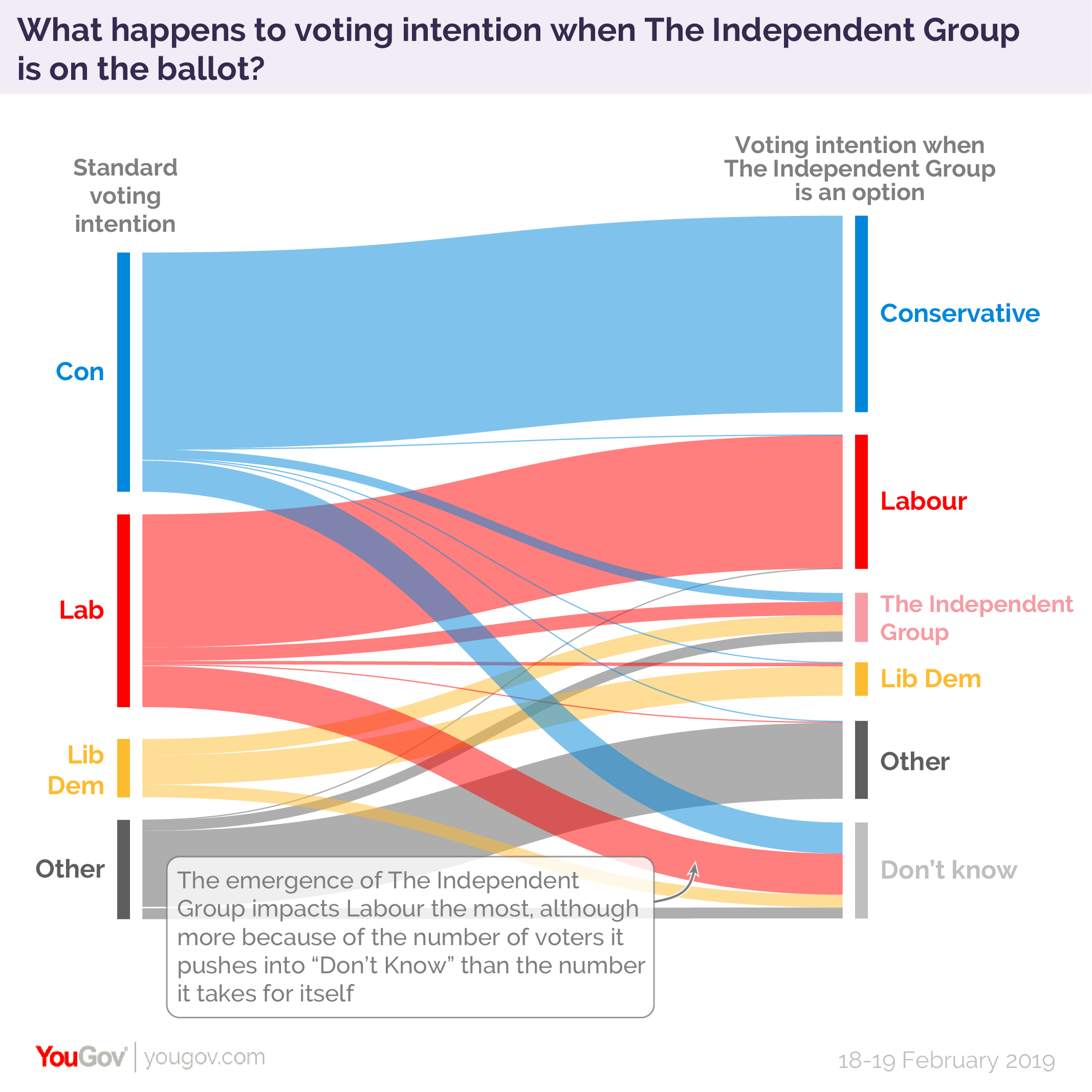A round-up of all our polling so far
With The Independent Group just over a week old and 11 MPs strong, here’s everything that YouGov has discovered about public opinion on the group so far.
Making headlines
The group’s emergence has secured headlines across UK mainstream media, and 45% of Britons say they’ve been following the news very or fairly closely. A similar number (47%) say they’ve not been following the story very closely, or are aware of it but haven’t followed it. Almost one in ten (9%) were not aware of the story at all.
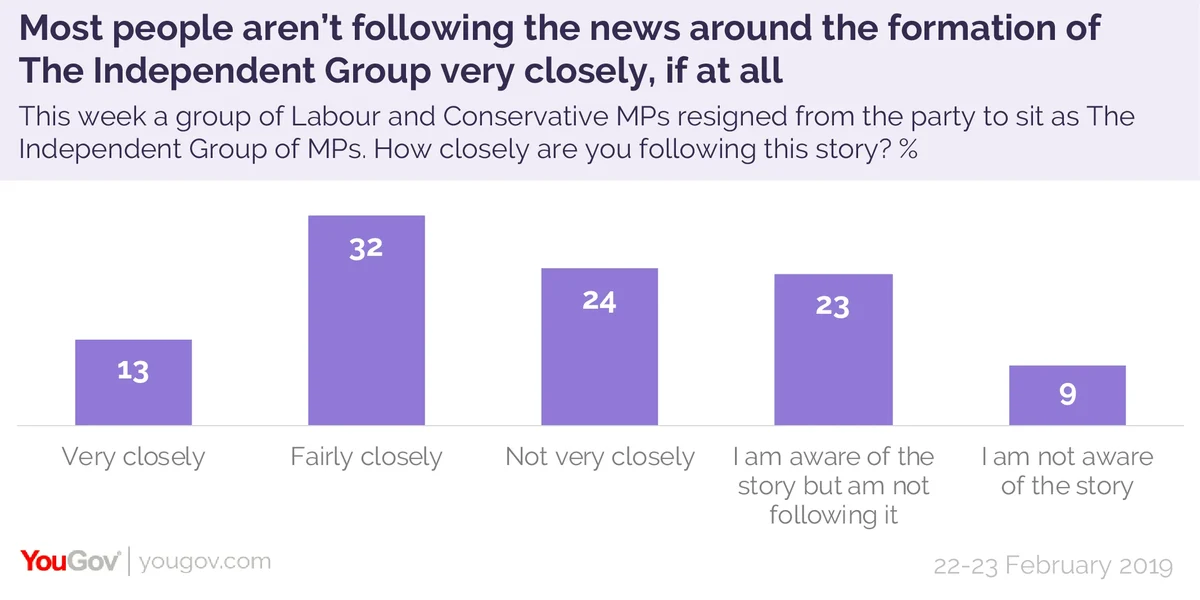
See results here
By-elections
The Independent Group MPs’ refusal to submit themselves to a by-election seems to fly in the face of public opinion. Half (49%) think that MPs should fight a by-election if they leave their party; only 28% think it’s not necessary.
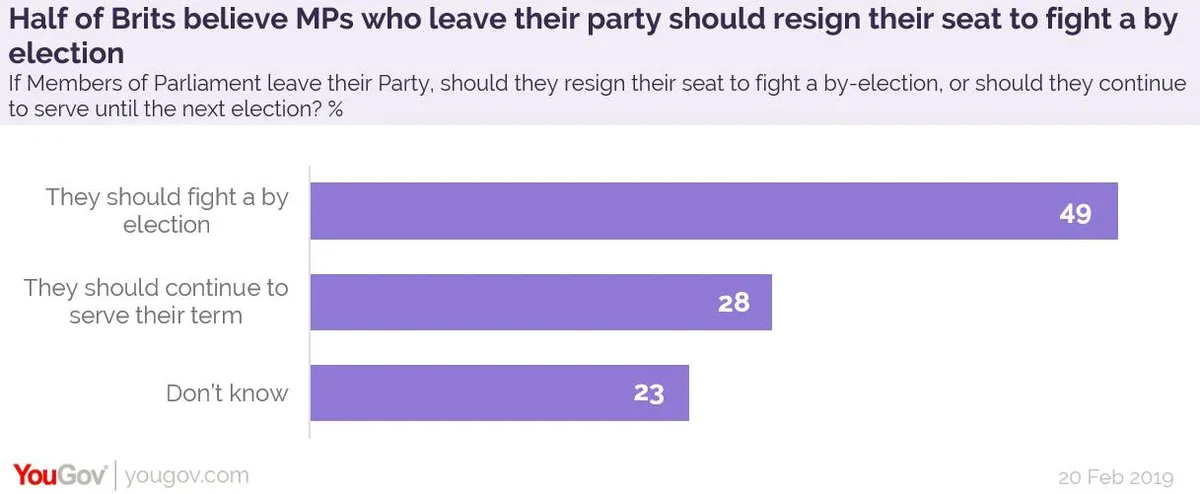
While The Independent Group is riding high on public support at the moment, the expectation is that they would perform poorly in by-elections. Of the initial SDP MPs who defected from the Labour party in 1981, only one triggered a by-election on principle. And he lost.
Voting intention
The Independent Group is not currently a party, but the expectation among many in Westminster is that it will eventually become so. If they already were, our data shows that 18% of the public would back them. Such figures should be taken with a large pinch of salt at this point, as the novelty value of the group is high and they’ve yet to set out where they stand on pretty much all policy areas.
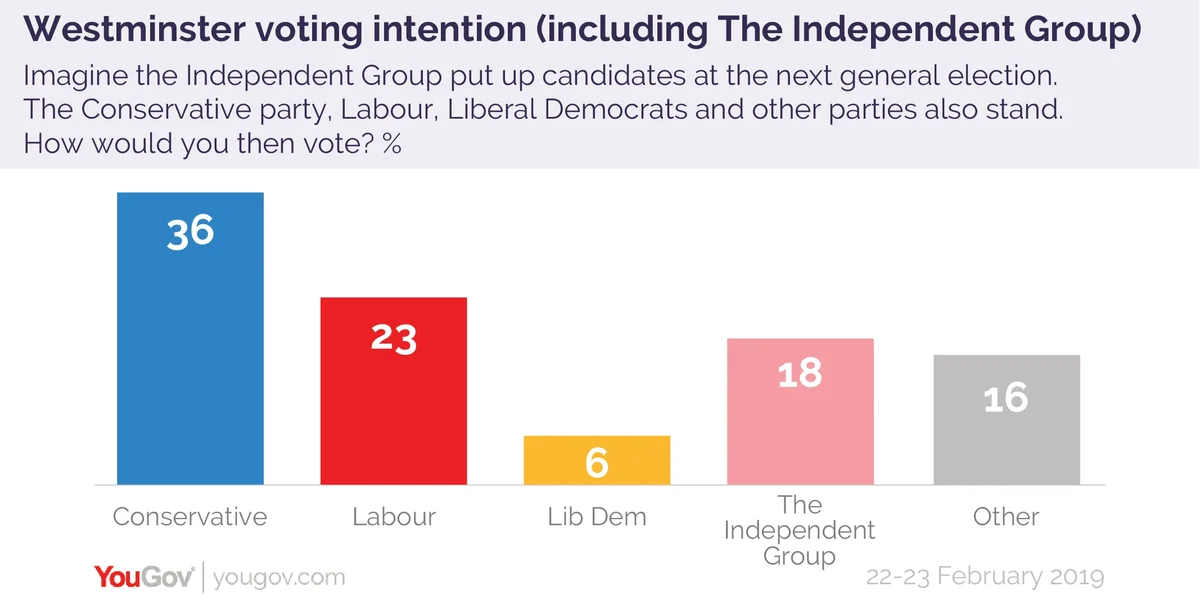
The narrative that the emergence of the SDP lost Labour the election in 1983 is being used to criticise The Independent Group now, but it’s not actually scooping up swathes of Labour voters. The biggest impact on polling data when YouGov included the group as a hypothetical party was to push lots of Labour voters into “don’t know”, rather than towards The Independent Group.
See results here and here
Vote consideration
Our voting intention data reveals which party Britons would back when forced to choose just one, but it doesn’t represent a firm limit on potential support as many would consider voting for multiple parties.
One in six Britons (16%) say they would definitely vote or seriously consider voting for The Independent Group if they stood as a party. (Please note this figure is from a sample of all Britons, as opposed to only those who would definitely vote in an election).
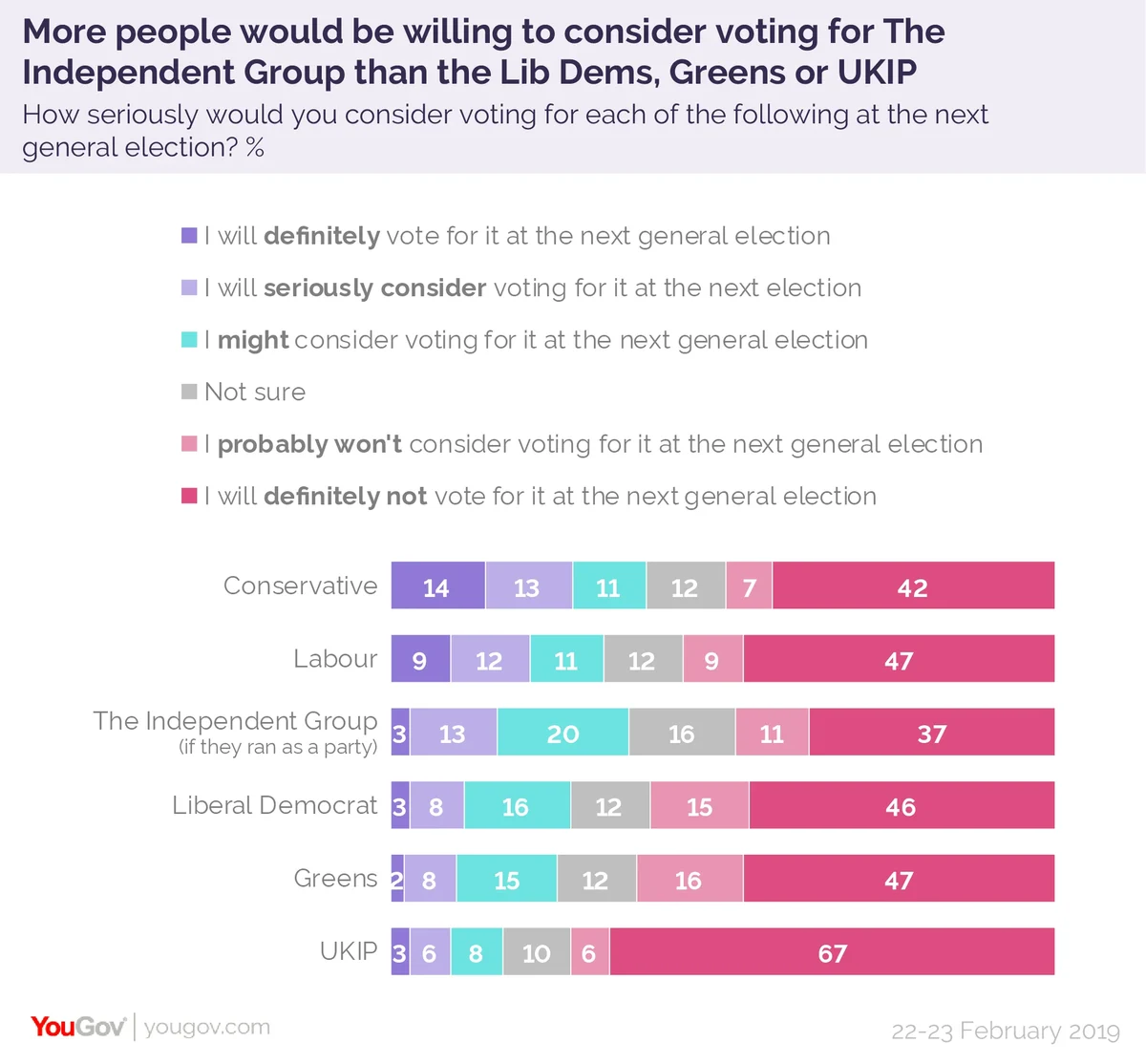
This puts them ahead of the Lib Dems (11%), Greens (10%) and UKIP (9%), but falls some way short of the 21% who said the same of Labour and the 27% who would consider the Conservatives.
However, the group has a healthy 20% of Britons who say they “might” consider voting for them. If this figure were combined with those who say they would definitely or seriously consider voting for them (36% overall), then in fact the party has a larger potential pot to draw on than Labour (32%, although still behind the Conservatives’ 38%).
Similarities to other parties
One danger for The Independent Group is that the Labour party that many of its members have just abandoned will successfully convince the public that they are merely ‘Diet Tories’.
For now the British public are still getting to know the new group, but to the extent they are seen as being like any of the other parties, the one they are regarded as most similar to is the Liberal Democrats. Close to a third (31%) of Britons believe them to be very similar or fairly similar to the successor party to the last bunch of Labour defectors.
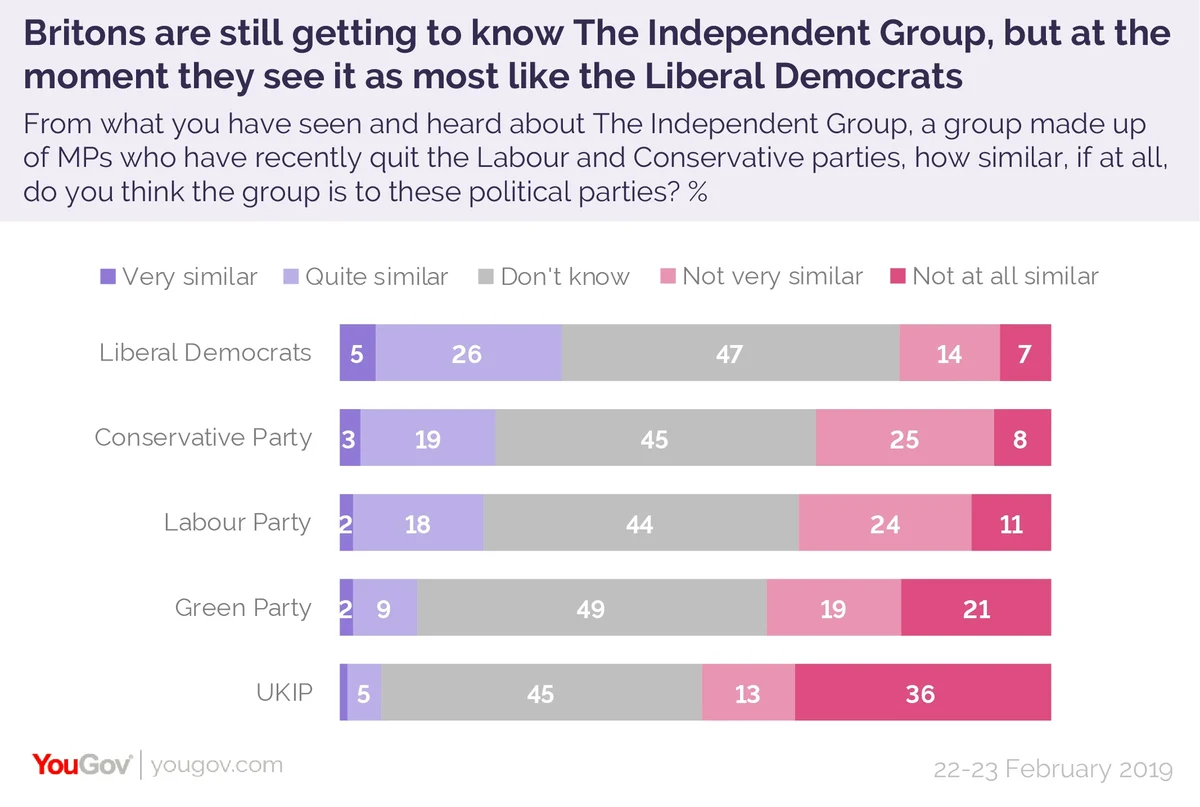
While 22% of Britons think they are similar to the Conservatives, they are counterbalanced by the 33% who think they are not similar, and the 20% who think they are similar to the Labour party.
Britons think the Labour MPs were right to leave the party
Although those Labour MPs who have stayed have generally joined in a chorus saying that it’s important to stick together, 46% of Britons say Berger, Umunna and co were right to defect from their party – only 13% say that they should have stayed.
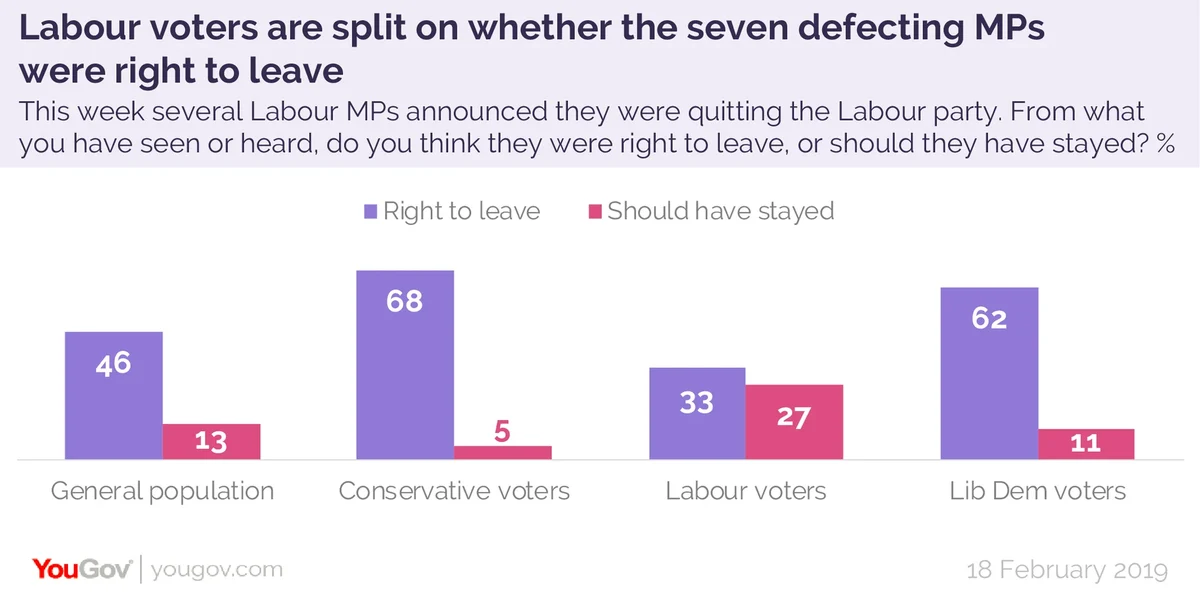
Labour voters are much more split: 33% say they were right to go, and 27% think they should have remained. It’s also worth noting it’s not clear from the results whether “right to go” means that people think the MPs made the right decision based on their circumstances or simply that they were glad to see the back of them.
Labour voters are split on whether the departing MPs or Labour most closely represent their values
Speculation that Labour would fracture in some way has been ongoing since Corbyn took over as leader in 2015, given the tensions between the resurgent left wing of the party and the diminished centrists.
This fault line is exposed in our question asking Labour voters whose values better represented their own: those of the defectors of the larger Labour party. Close to a quarter (23%) of those who backed the party in 2017 say that their values are closer to those of the defecting MPs, while a similar proportion (27%) say that they are closer to those of the current Labour party. An intriguing 13% said that their values are not close to either, while the remaining 37% answered “don’t know”.
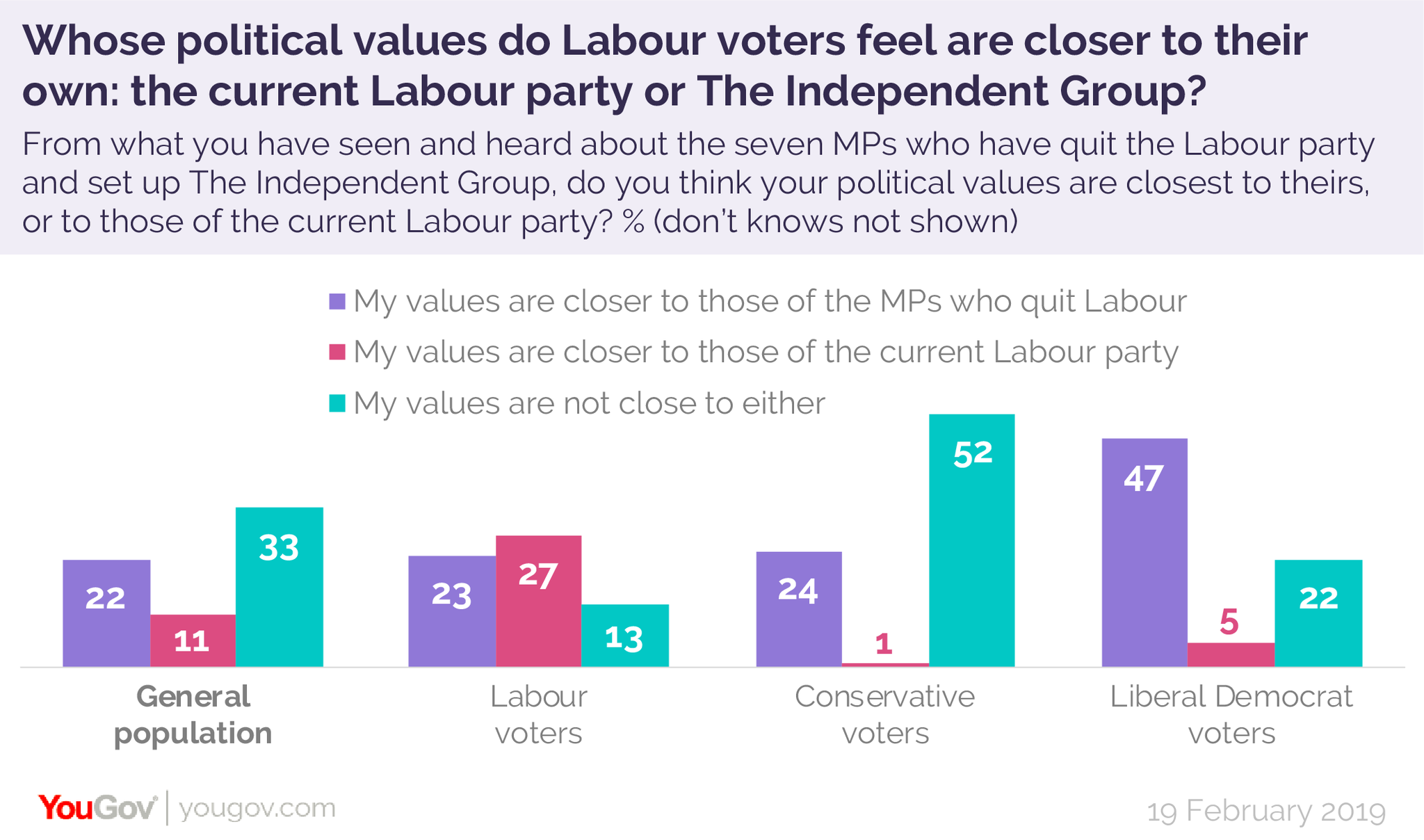
See results here
Can the centre ground hold a new party?
Despite the main parties having shifted more to their respective ends of the political spectrum, at the last general election they gained the greatest combined share of the vote since 1970. This begs the question: can the centre ground sustain a dedicated centre party?
We examine the issue more fully in this article, but in short there are plenty of Britons who would back a centrist party. Whether or not TIG can secure their support is another matter…
Photo: Getty

